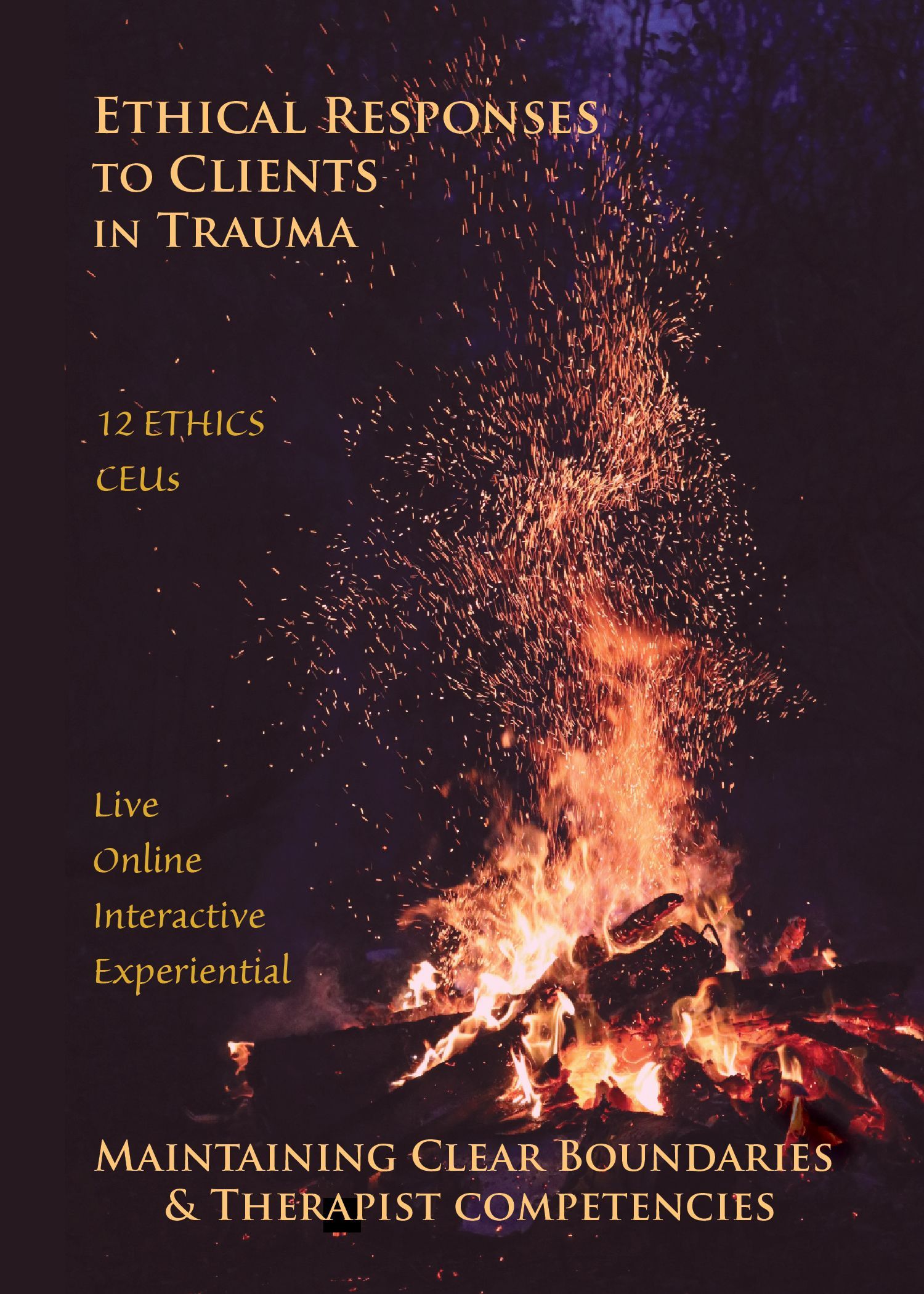Ethical Responses
to Clients in Trauma
Maintaining Clear Boundaries & Therapist competency
12 ETHICS CEUs for Mental Health Professionals
Join our upcoming training!
Contact Katherine Paras for information
about dates of upcoming classes.
Do you believe in the need to help others?
What empowers you to sustain this passion?
Does your compassion include yourself?
Given the increasing incidents of trauma, violence, and collective stressors we are experiencing, care given to traumatized people is an expanding necessity within increasing and unpredictable situations. Dominant cultural trends, pressures, and prejudices (racism, religious intolerances, sexism, mass shootings, hostility to immigrants, etc.) simultaneously intensify both the burdens we all carry and the care we need to provide to our clients. Multigenerational trauma and historical trauma compound these realities.
When we work with clients in such trauma, we are repeatedly exposed to the pain, fears, the feelings of helplessness, grief, and terror of those we seek to help. Disruption and dissociation from our clinical relationships with the people we support can follow. Ethical responses to such clients require conscientiously consistent attention to therapeutic attunement, boundaries, and competencies.
In this highly interactive, experiential training, participants will collaboratively learn about and use a variety of interventions that strengthen these essential ethical necessities.
- Via art materials and self-reflective writing, we will use line, gesture, and color to explore sensations in the body.
- Using practices that enhance compassion for self and others, we will learn how the energies of stressful inner tensions can by safely externalized, out of the body and into visual imagery and words.
- Through carefully guided, dynamic self-expression grounded in self compassion, we will identify at-risk therapeutic boundaries, competencies, and clinical attunement with our traumatized clients.
- Role-playing, video viewing, and class discussions will amplify our collaborative learning.
- A "Take-Home Intervention Tool Kit" will emerge from class experientials and discussions.
In addition, an annotated bibliography will be provided, with references drawn from multiple source: psychiatry, social action fields, mental health resources, and government sites.
CLASS OBJECTIVES
Participants will be taught how to:
(1) List and describe the symptoms of trauma to which they are repeatedly exposed in their clinical work.
(2) identify aspects of multigenerational trauma and historical trauma that add to this list of symptoms.
(3) Describe and normalize responses to the stress experienced amidst caregiving responsibilities, in self and in clients.
(4) Identify and develop intervention strategies to rebuild therapeutic boundaries at risk.
(5)Identify and develop intervention strategies to re-strengthen therapist competencies at risk.
(6)Identifysigns of loss of therapeutic attunement, indicating compromised client care.
(7) Describe three practices that expand therapeutic attunement to traumatized client and their needs.
Learn what people experience in classes
Mental Health CEUs
Katherine Paras, M.S., ATR-BC, LPAT is a designated Clinical Supervisor and a Continuing Education Provider certified by the New Mexico Counseling and Therapy Practice Board. Her CEU classes are approved for licensees of NMCTPB and New Mexico Board of Social Work Examiners. CEUs may also be applicable to licensing boards of other states. It is the responsibility of licensees to stay informed as to their particular licensing board's requirements as they can change from time to time.




